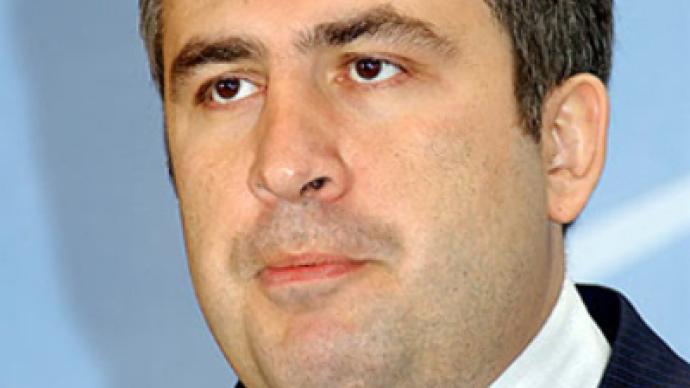Saakashvili maneuvers to stay afloat

There is little mystery in Saakashvili’s request to the US to join the EU Monitory mission around the seceded regions of South Ossetia and Abkhazia, now recognized by Russia as independent and sovereign states.
The Georgian president continues to promise his citizens to take back South Ossetia and Abkhazia under the Georgian government. But he probably understands now that this promise can be honored neither by himself nor by his successors. For that reason, he is trying to frame the situation as if Russia were to plan anything on the ground which, in fact, is not occurring, because Russia has no need at all to change the situation that Saakashvili created himself through his aggression towards South Ossetia last August.
President Obama and many European capitals are perfectly aware of that. The involvement of the United States in the monitoring mission would eventually add more problems to US-Russian relations which, in turn, could be played by the Tbilisi government. In that sense, the Saakashvili move sounds like an attempt to reduce the meaning and the scope of the recent Medvedev-Obama summit in Moscow.
In fact, the trip to Kiev and Tbilisi by Vice President Joseph R. Biden offers some glimpse of hope, telling Georgia and Ukraine that the US will not abandon the respective leaderships while they are trying to distance themselves from Russia. But it is also clear that this aim – if pursued energetically – will challenge Russia, which makes no mystery about its desire for the United States to scale back its involvement in the post-soviet space. Mr. Saakashvili is working on that.
He is also aware that European feelings are not at all favorable to renew or encourage the acts of force in the region. Not only because of the painful results of last year’s August adventure, but also because many European governments (with the exception of some Baltic states) are facing other, more urgent problems that need resolving, rather than pursuing a confrontational course with Russia.
Moreover, the internal political fight in Georgia between Saakashvili and his enemies has already brought up some serious questions about the democratic standards the Georgian president is following. Therefore, Saakashvili’s space to maneuver is indeed very limited and unstable. President Obama is certainly aware that he cannot improve relations with Russia without taking very seriously Russia’s concerns on the issue of stability in the Southern Caucasus.
Giulietto Chiesa, RT contributor












